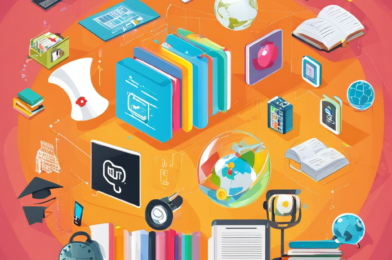Education is evolving, and technology plays an increasingly integral role in how students learn and engage with their education. The vast array of educational apps available today offers students a diverse range of tools to enhance their learning experience and improve their academic performance.
From language learning to math practice and from note-taking to organization, there’s an app for every student’s needs. One of the most well-known and widely used educational apps is Duolingo. With its gamified platform, Duolingo makes learning a new language fun and addictive. The app offers a variety of languages to choose from and allows users to track their progress, providing a sense of accomplishment that keeps students motivated.
For those looking to strengthen their math skills, Khan Academy is a fantastic resource. The non-profit organization offers free, high-quality math lessons and problem-solving exercises. The platform covers a range of math topics, from basic arithmetic to calculus, and provides users with step-by-step tutorials and videos to ensure a thorough understanding of the concepts.
Note-taking apps such as Evernote and OneNote are also invaluable tools for students. These apps allow users to take notes, create to-do lists, and organize their thoughts and ideas efficiently. With synchronization across multiple devices, students can access their notes anywhere, making studying and project collaboration more accessible than ever.
Organization is key to academic success, and Trello is an excellent app for helping students stay on top of their tasks and deadlines. With Trello, users can create boards, lists, and cards to organize their projects, assignments, and other responsibilities. The app also allows for collaboration, making it easy for students to work together and stay organized, even on group projects.
Google Suite is another must-have for students. With Google Docs, Sheets, and Slides, students can create, edit, and collaborate on projects and assignments in real-time, making group work more accessible and efficient. The suite also includes Google Drive, offering a convenient way to store and access files from any device.
Additionally, for literature lovers, there’s LitChart, an app that serves as a literature guide, providing in-depth summaries and analyses of various literary works. It covers themes, characters, and Contextual information, enhancing students’ understanding and appreciation of the selected novels, plays, or poems.
Lastly, Quizlet and Memrise are excellent tools to help students memorize information and study more effectively. With customizable flashcards, games, and quizzes, these apps make learning fun and engaging.
The educational apps mentioned above barely scratch the surface of the extensive resources available to students today. Embracing technology as a tool to enhance learning can empower students to take control of their education and develop valuable skills that will benefit them throughout their academic careers and beyond.






